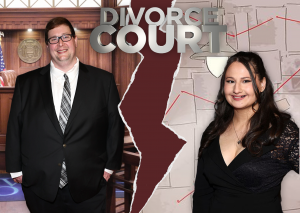Growing up I was taught that opposites attract. However, I don’t know if that is the case anymore.
As of late, people have been more and more attached to those who think and act exactly like themselves. They will close off to the rest of the world and do not associate with anyone that do not have the same opinions as they do.
But, as I am sure we are all aware, similarity does not attract, it repels. It forces people away that may not necessarily agree with you. It also closes off your mind to having open and respectful conversations because you constantly are having people reaffirm what you already believe you know.
This affirmation makes your opinions more solidified in your mind. Which, in turn, modifies your beliefs into what you convince yourself to be facts.
This transformation of opinions into facts is extremely dangerous because it prevents any form of dialogue from occurring.
“Some Americans are able to forgo their own opinions to better understand the opposite side; however, I believe that the majority of America wants to prove that their opinions are superior by ‘winning’ arguments,” junior early childhood education major Abby Everson said.
Unfortunately, Everson is right. Sometimes individuals care more about winning the conversation than listening to what the other person has to say. However, in everyday conversations, there is no such thing as “winning.”
It isn’t like everyone has debate judges walking around with them 24/7. What these conversations really turn into are lost opportunities for us as a society to gain a better understanding of the people around us.
This then brings us back to the idea that opposites attract or can at least enhance one another.
“I think it’s extremely beneficial that you get opinions from a wide variety of people so that your ultimate opinion is from a wide variety of sources,” junior psychology major Courtney Larsen said.
I believe that the first step needed to rework how we converse is to begin to change the way we see differences: we need to view them as a tool that can be used to support or change our beliefs, not a challenge to who we are.
Differences help us develop opinions that are more complex and include more aspects of life that we normally would have overlooked.
“I think it is possible for people to have conversations where they do not get defensive; however, I only think this is possible when both sides are able to push past their own opinion and truly listen to what the other person has to say,” sophomore history major Adam Lang said.
If we want to return to a world where our opinions are valued and not discriminated against, we need to be able to listen to each other. We need to be able to go into conversations wanting to understand the other person’s perspective rather than wanting to destroy it.
However, the road to reach these goals will have many bumps. We as individuals will need to actively strive to hold each other accountable. We need to further educate ourselves on our own beliefs so that when we have to support them we will have the material to do so. Most importantly, we will need to change our mindset from one of repulsion to one of attraction.




